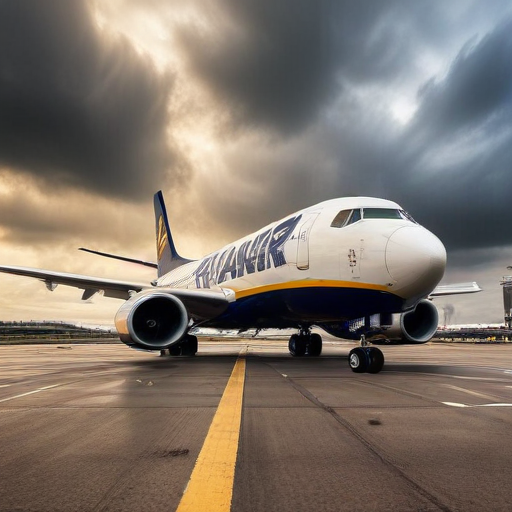Ryanair has expressed disappointment with its recent business performance, mirroring investor sentiments as the airline’s stock has plummeted by 17%. The budget airline reported a quarterly revenue of €3.6 billion (approximately $4 billion), which remained flat compared to the same period last year. However, profits saw a significant decline, dropping nearly 50% to €336 million. CEO Michael O’Leary noted that while there is a strong growth in passenger numbers, which increased by 10% to 55 million, these gains are contingent on maintaining competitive pricing.
O’Leary mentioned during the company’s earnings call that Ryanair is facing challenges with close-in fares and bookings that have proven to be weaker than anticipated, particularly in preparation for the peak travel months of July, August, and September. The airline is also grappling with increasing labor costs and has experienced delivery delays from Boeing, a persistent issue for O’Leary, who has consistently urged the aircraft manufacturer to improve its performance.
Additionally, O’Leary pointed out that customers seem to be facing more financial strain than they did during the early stages of the post-COVID economic recovery, suggesting that years of inflation and slowing growth in the European Union are beginning to impact consumer behavior. Interestingly, he stated that having less flight capacity may actually work to Ryanair’s advantage in this challenging economic climate.
Looking ahead, O’Leary indicated that the airline anticipates a reduction in capacity for the summer of 2025 compared to previous schedules, signaling two years with no capacity growth. If consumer pressures persist over the next year and a half, this might strategically position Ryanair to navigate difficult market conditions more effectively.
In summary, while Ryanair is currently facing obstacles due to economic factors and operational challenges, there is potential for the airline to adapt and come out stronger in the long term. The focus on strategic capacity management could allow the budget airline to better align with market demands as it confronts evolving consumer behavior.
This situation serves as a reminder of the resilience required in the airline industry and the importance of adaptability as economic circumstances shift.
